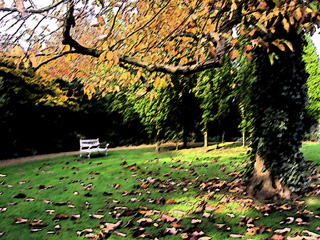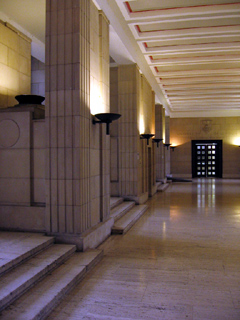
Modified photos of the day
What do people think of the modified photos I have been posting recently? (One, two, three, four, five.) In basically all cases, they have a single Photoshop filter applied, along with some contrast, levels, hue, and sharpness adjustments. I like them because they look good, and they provide a bit of variety. Unlike a film camera, where you can change the look of your photos enormously by using different stock, you are stuck with the characteristics of the digital sensor you have. Even as those become familiar, they begin to feel like constraints.
One thing that seems to be true about photos is that they often contain too much information; just as black and white can be a good way to force attention towards texture and composition, it seems like a lot of shots can be more interesting when elements of their geometry and colouration are highlighted.
That said, if people don’t like such modifications, I can certainly go back to showing straight versions all the time. Unmodified versions of all of these shots can be found on Facebook, as I do not take the time to adjust anything that goes online there.
Ongoing tasks
There is a great deal to be done at the moment:
- I need to write two essays for the Developing World seminar, presumably before I go to Turkey with my father.
- to prepare for that trip: finding out at least a tiny bit about the country and what to see in it.
- to prepare a group debate for this coming Thursday, as well as do the normal readings for that class.
- to push a batch of student loan paperwork through the bureaucratic edifices of the college.
- read two thesis-related books, three long thesis-related articles, and a thesis related thesis: soon
- pay a hefty chunk of backdated rent from this summer
- prepare a fifteen minute thesis presentation for this Wednesday
- come up with something to do for my birthday on or around the 28th of November (probably around, as there is OUSSG that night)
- continue seeking a job for next year
- write a first chapter for the thesis?
The collection is a daunting one; hence, the importance of developing and maintaining motivation. This is something that my flatmate Alex seems to have no trouble with – one of the reasons for which he often seems such a likable but incomprehensible creature.



